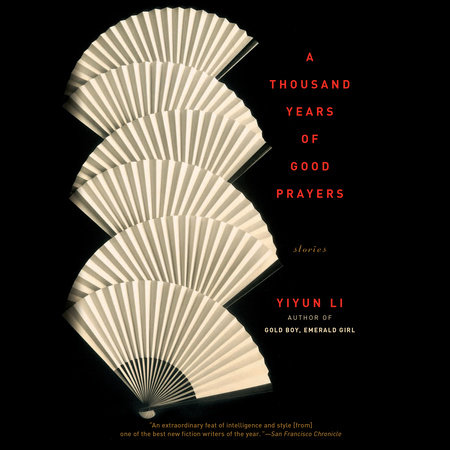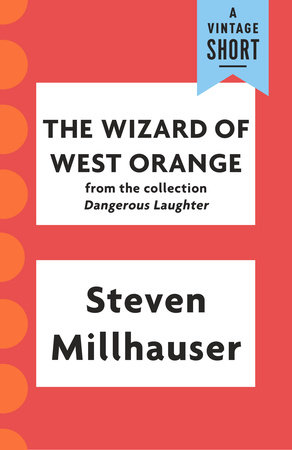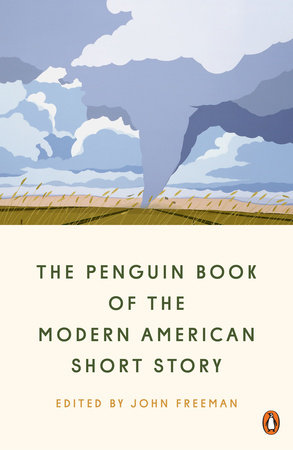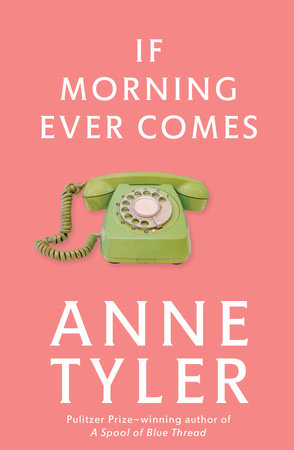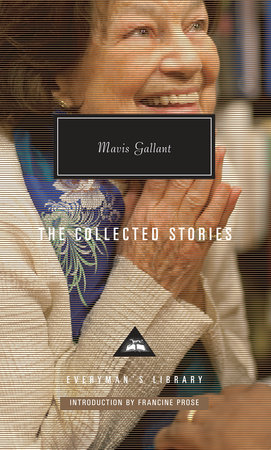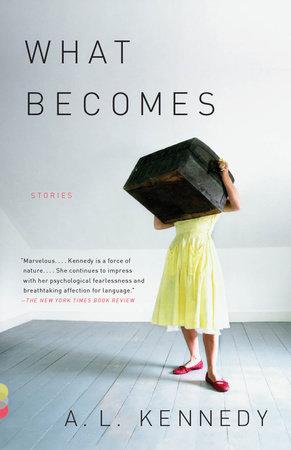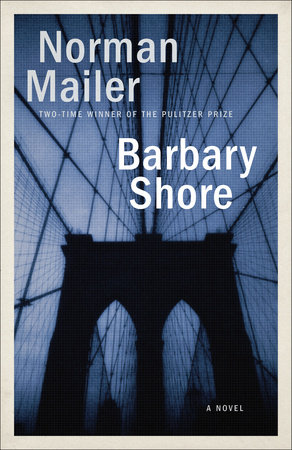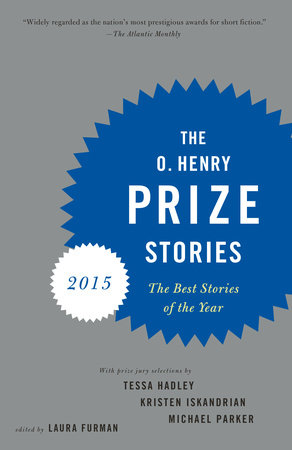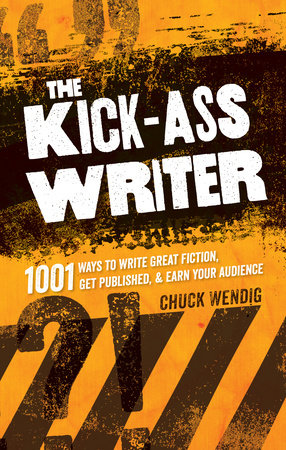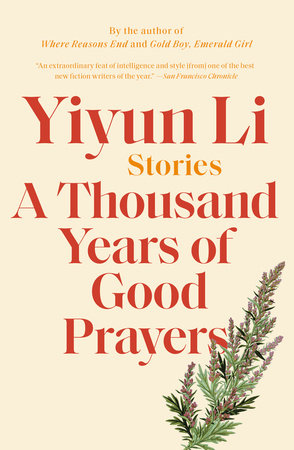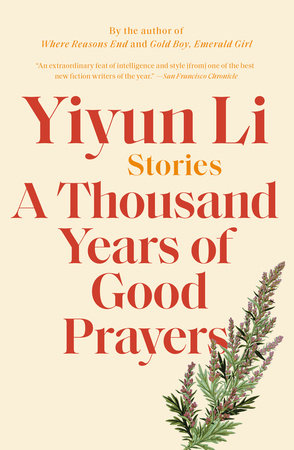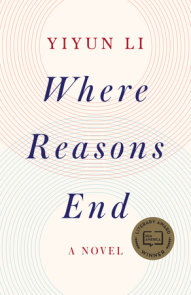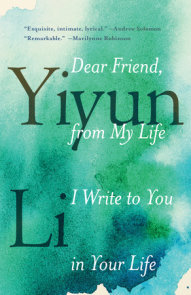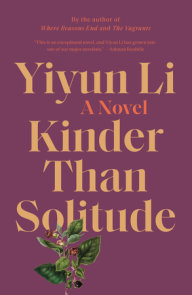Author Q&A
A Conversation with Yiyun Li
Question: A Thousand Years of Good Prayers presents readers
with a stunning vision of China, past and present. When
you think of your homeland, what thoughts or images come
to mind? What are your feelings about China today?
Yiyun Li: I have always said that there are two Chinas. The
first is a country filled with people, like my family and many
others, who try to lead serious and meaningful lives despite
the political, economic and cultural dilemmas they face.
The second is a country with a government controlled by
one party, made rich from corruption and injustice. I love
the first China but do not love the second. So when I think
about China today, I always have mixed feelings.
Q: When did you come to America, and what brought you
here?
YL: I came to America in 1996 to attend the University of
Iowa. I had planned to pursue a Ph.D. in immunology and
hoped to stay in the medical science field as a researcher.
Q: But instead of becoming an immunologist, you became
a writer—that is quite a switch! How did that happen?
YL: I had never thought of becoming a writer nor had I
written anything before I came to Iowa. But once there I
stumbled into a community writing class, which led to more
writing classes, and I began to seriously consider changing
my career.
Q: Such a career change must have been quite daunting.
What inspired you to actually pursue writing? Did you have
a literary role model or teacher, who encouraged you along
the way?
YL: Several teachers early on were very encouraging and
supportive, among them the Pulitzer Prize–winner James
Alan McPherson, a great mentor and friend. When he read
my first story, “Immortality,” he became so excited that he
actually tracked me down through a friend. He asked her to
bring me two things: a present for my baby (I was seven
months pregnant when I workshopped the story with him),
and a message saying I was a great writer and that I had to
keep writing. From that moment on I had no doubt that I
wanted to write, and that I wanted to write well.
My literary role model is William Trevor, a great writer
himself and a true gentleman. I always consider him my
most important teacher in writing. I read his work again and
again to get to my own voice.
Q: Speaking about your own voice and approach, how do
you go about constructing a story? What process do you go
through, to imagine the characters, structure, and plotline?
YL: I like to ask myself what kind of character would do
certain things that other people would not do. For instance,
I once saw a news clip that reported a beggar coming into a
crowded marketplace with a sign: “If you give me ten yuan,
I will let you cut me once; if you finish my life in one cut,
you don’t owe me anything.” It was just one of the hundreds
of little tales we hear and see every day, but I could not forget
the beggar. In my mind, I kept imagining a woman who
would come forward and cut the beggar with all justification
and tenderness. What kind of character would do this? I
thought about this and eventually the character Sansan
(from “Love in the Marketplace”) came to me. Most of my
stories come this way, with a minor character (sometimes
very minor) as a seed for imagination.
Q: I was struck by a wonderful line in the title story about
the power of a new language. As Mr. Shi’s daughter says, a
new language “makes you a new person.” Did you find this
to be true when you began writing in English?
YL: Absolutely. For me, writing in English is the most liberating
experience. In English, I am free to express things that
I would have consciously censored—both out of political
pressure and cultural pressure—had I been writing in Chinese.
Q: The “American dream” is a prevalent theme in your
work. What does it mean to you personally, and also in your
storytelling?
YL: For me, the American dream meant that I could pick up
writing and become a writer, something I had never dared to
dream before coming here. For my characters, it means
freedom to escape totalitarian control on many different
levels—from parental supervision to the ideological control
of the Communist party.
Q: The stories in this collection are infused with aphorism
and mythology. Where did you learn these wise and wonderful
proverbs?
YL: Most of them I inherited from Chinese tradition and
translated into English. Someone at a reading once said that
he counted more than sixty of these sayings and I was quite
surprised by the number. A lot of them are used in dialogue,
which is how Chinese speak: full of proverbs and references
to mythology. I used these to make the dialogue more genuine.
Q: Along those lines, what is your own favorite adage about
life?
YL: There is a saying in Chinese: For someone to achieve
anything, he has to first work as hard as he can; whether he
is allowed the achievement, however, is determined afterwards
by the heavenly power. I think the saying reflects how
I feel about life and my characters. Several readers have
commented on the fatalism of many of the characters in the
stories, and I think that the fatalism came with my belief in
this Chinese saying.
Q: Are you working on anything new?
YL: I am working on a novel set in China in 1979. It tells the
story of the disintegration of a community after a public execution
of a female political prisoner.
Q: America’s history with China is complex, to say the least,
and will be a defining relationship for the world of the
twenty-first century. What do you think Americans should
know about China that they might not already know? On
the other hand, what do you think the Chinese should know
about Americans?
YL: One time, I met two old women in the street here in
America who read “Extra” and loved the story. They said to
me, “we both agreed we could be Granny Lin.” Another
time someone told me that after reading “The Princess of
Nebraska,” he realized every Chinese graduate student he
walked past in the street might have a rich story. These are
the things that I think people in both countries tend to
forget—that deep down we are all human beings, and the
pains and joys we have are the same. In a way, I think the
two countries are set up in the public view as competitors,
which can lead some Americans and Chinese to feel wariness
or animosity toward one another. But in the end, people
here in America are like what you will find in China, too.
